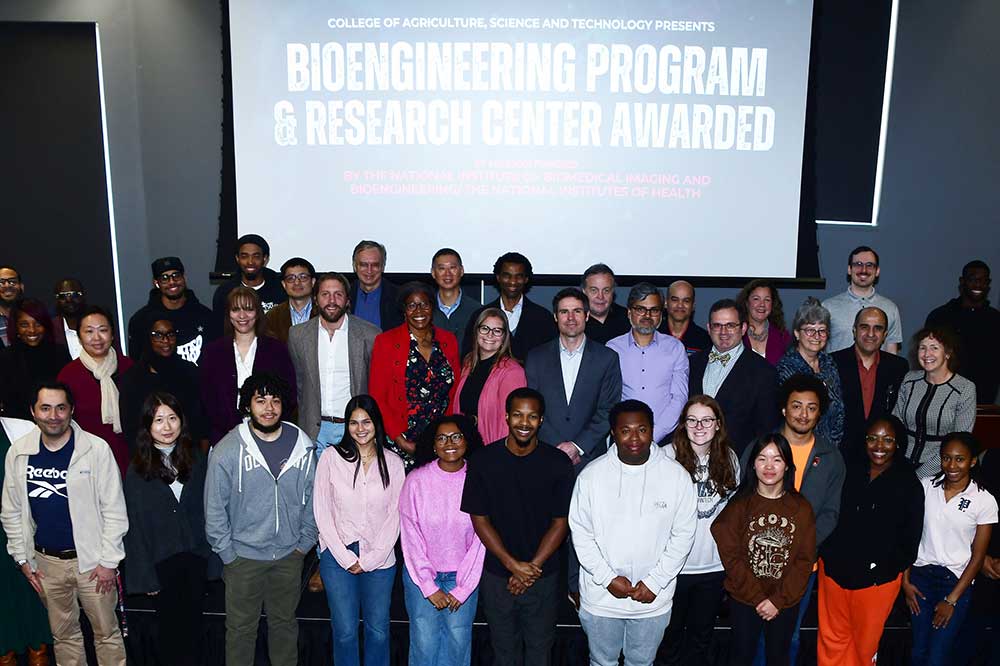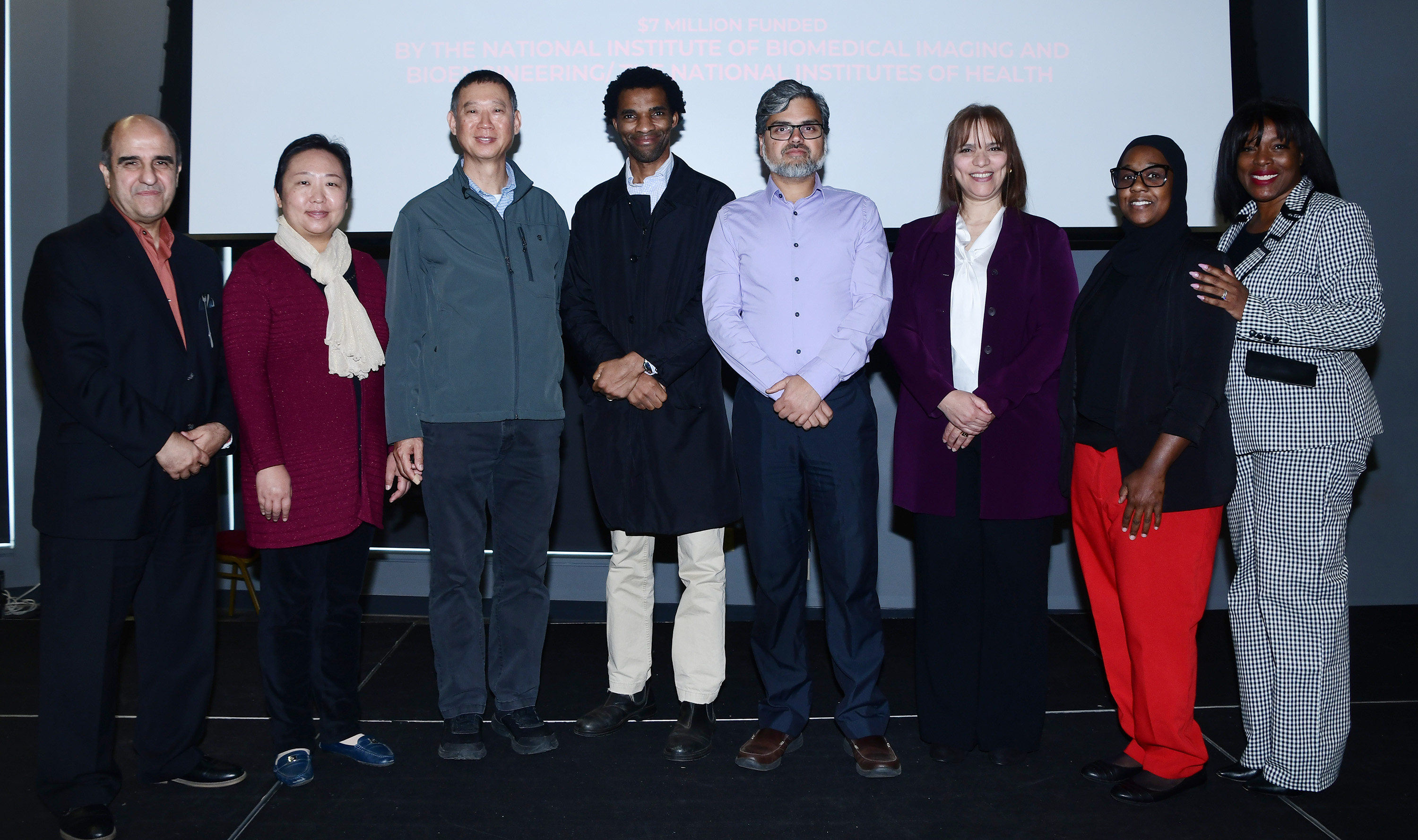
DSU Awarded $7M grant for bioengineering research
Delaware State University’s College of Agriculture, Science and Technology (CAST) has received a federal seven-year $7 million grant that will thrust it into the bioengineering realm.
The grant – which comes from National Institute of Health’s National Institute of Biomedical Imaging and Bioengineering – will result in the establishment at DSU of a Center for Research and Education in Multiscale Bioengineering, Bioimaging, and Biosensing (REMB3 Center).
Dr. Hacene Boukari, Professor of Physics and Engineering and the Principal Investigator of the grant, notes that the research capacity that DSU has developed over the years was a major factor in the award this NIH grant. He said this grant will future expand that capacity.
“This new grant will take us further to build capacity for bioengineering, bioimaging, biosensing, and date methodologies,” Dr. Boukari said. “We will use our experience in optical science to accelerate the research in biomedical fields, and the development of new tools, devices and methodologies to help address big questions in human health care and the environment.”
Delaware’s Congressional Delegation of U.S. Senators Tom Carper, Chris Coons and Congresswoman Lisa Blunt Rochester (all D-Del.) supported Delaware State University receiving this federal funding.
“We are proud to see Delaware State University continue to advance as an economic driver and bioengineering research hub in our region,” said Carper, Coons and Blunt Rochester in a joint statement. “This is just the kind of project that makes good use of federal taxpayer dollars and gives back dividends in the talent and research it will produce.”
“This grant will be an important catalyst for strengthening our state’s thriving life science ecosystem and accelerating biomedical innovation,” said Michael Fleming, CEO of the Delaware BioScience Association. “We’re excited about the new bioengineering and bioimaging partnership opportunities for both research and student programs – and the integrated approach bringing together critical capabilities in neuroscience, biology, data science and other key areas.”
The REMB3 Center will develop a Bachelor of Science in Bioengineering Program at DSU. The grant will facilitate a partnership between DSU, the University of Delaware, and Rowan University in New Jersey to develop a 3+2 dual degree Bachelor of Science and Master of Science in Biomedical Engineering Program.
The 3+2 dual degree programs will become a reality after agreements are finalized between the three institutions.
In the adjacent photo (l-r) is the REMB3 Team at DSU includes: Dr. H. Boukari (director), Dr.Qi Lu (senior researcher, bioimaging/engineering) , Dr. Qiquan Wang (chemistry/environmental analytics), Dr. Hakeem Lawal (biology/neuroscience) Dr. Mohammad Khan (engineering/biosensing), , Dr. Fatima Boukari (data Science/machine Learning), and Antonette Todd (senior researcher, genetics), with CAST Dean Cherese Winstead. Not pictured: Dr. Jinjie Liu (mathematical simulations/modeling).
Addition to the interdisciplinary involvement of neuroscience, biological sciences, optical science and chemistry, data science will have a significant role in the research endeavors.
“Data science is essential for the program because that is the next wave of the future,” Dr. Boukari said. “We will be collecting a lot of data from humans, from machines, etc., and integrate them together to go do the new frontiers in health care.”

